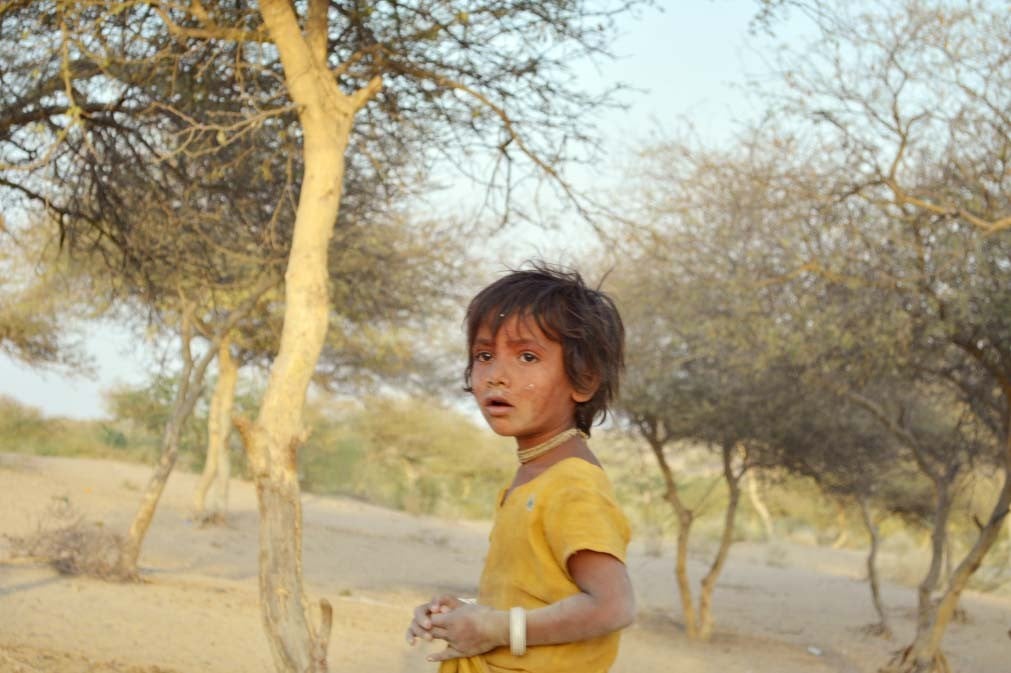
Once again Thar is in the grip of child deaths -- and nothing is being done to prevent this tragedy on a permanent basis

With the start of the New Year, Thar in Sindh is once again making headlines. On Wednesday, Jan 13, seven children, including a newborn, died in different public hospitals in the area -- raising the total death toll to 52 since January 1, 2016.
This tragedy returns to Thar every year, or at least has returned for the last four years. Initially, the local media reports children’s deaths in different hospitals of the drought-hit Thar. When the deaths start being discussed on social media, the national media, especially private tv channels, create frenzy around the issue.
Mostly such cases are reported at the end of monsoon season, when there is no rain and the desert is dry. But, surprisingly, this year the deaths have occurred in the winter season.
Like every year, the Sindh government stated that the children died because of different reasons, including diseases, not hunger or the government’s negligence.
However, the PPP-led provincial government has already announced a relief package for Thar people to limit media criticism.
Chief Minister Syed Qaim Ali Shah, while talking to media persons on Jan 14, said media is exaggerating the number of deaths. "Opponents are falsely blaming our government, but we are doing great work to help the people of Thar," said the CM.
Shah was supported by his cabinet and party leaders, who praised his government for doing ‘great’ in Thar. Sindh Food Minister Nasir Shah rejected the media reports, denied the possibility of drought in Thar, and instead stated the children are dying because girls are wedded at an early age and have no skills to handle neonatal care or delay in providing medical care for their ailing children.
According to the official data, in the last four years, more than 1,600 children have died in Thar due to different diseases caused by lack of food. But the Sindh government instead of making permanent arrangements simply announces packages. Locals maintain that the Sindh government announces distribution of free wheat because it allows the district-level PPP leaders to bag a huge amount of the package on the name of transportation for the distribution of wheat.
To further upset the situation in Thar, the Reverse Osmosis (RO) plants the Sindh government installed in Thar some time ago are out-of-order. Further, nothing has been done for the betterment of local hospitals and dispensaries for which the Sindh government has made tall claims.
According to the district health department, almost 70 per cent of seats of doctors and paramedics are lying vacant, despite the CM’s assurances to improve the situation.
Spread over approximately 20,000 square kilometres, this subtropical Thar desert lies along the Indian border on the eastern side of the Sindh province. It is home to 1.47 million people, almost half of them are Hindus.
Residents of one of the most fertile deserts depend on rain-fed agriculture or livestock for living. When there is rain, they grow traditional crops and sell them in local markets, but in case of no rain, they depend on their animals. In the absence of rain, the area lacks vegetation, causing food shortage and weight loss among animals. This prevents the locals from fetching a good price in the market for their cattle.
Nature conservationists believe Thar is one of the most affected regions by climate change. The situation has become so severe that since 2012 there is either no rain or it comes off season.
In 2013, after criticism from media, the Sindh government announced different packages for Thar people. But since most of the effort was limited to providing relief goods, including free distribution of wheat, nothing substantial has been done to rehabilitate the locals.
According to Ali Akbar Rahimoo, Executive Director, Association for Water, Applied Education & Renewable Energy (AWARE), all efforts by the Sindh government are directed towards curtailing media criticism. "The Sindh government’s response to deaths of children in Thar is rather ad hoc, it is not directed towards resolving a recurring tragedy," says Rahimoo while talking to TNS over phone.
Khatau Jani, a local journalist associated with a Sindhi tv channel, says the government will not solve the problem by distributing wheat but by developing the livestock sector, which is a major source of livelihood and nutrition of the local residents.